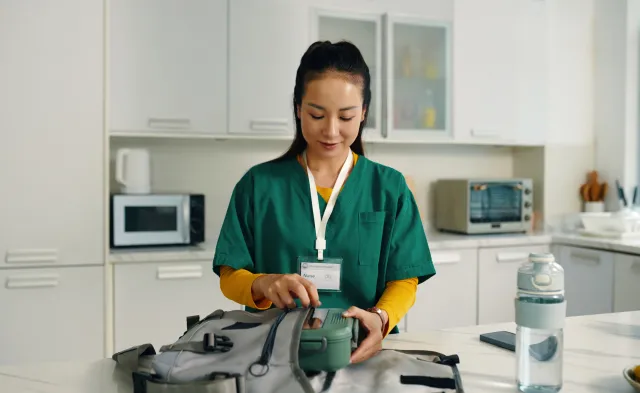Latest
Behind the Desk: Medical Office Assistants
Mar 29, 2021

Do you look forward to your doctor’s appointments? You might if you really like your doctor and expect good news about your health, or you could be nervous about what it will be like.
Regardless, a skilled medical office assistant (MOA) can make the experience better. The MOA is usually the first person you’ll interact with at the doctor’s office and can set a positive tone for the whole appointment. Some of the attributes that make for a successful MOA include:
- Excellent communication skills. No matter what environment MOAs work in, they should feel comfortable answering patient questions, communicating messages interdepartmentally as well as from doctor/nurse/medical assistants to patients, and gathering information from other professionals as needed.
- Calm under pressure. Hospitals and clinics can be very busy, with pre-scheduled appointments, ad-hoc walk-in emergency visits and emergencies often occurring concurrently, so MOAs need to be able to prioritize workloads and pivot as needed. Sometimes patients come into the facility during a high-stress situation and they look to the MOA for help, so the MOA must remain calm while providing assistance and maintaining a professional environment as much as possible.
- Organized. MOAs work with a wide variety of information and a range of documents such as patient records, lab reports, requisition forms and patient histories. They need to have solid organizational skills to maintain accuracy and file information appropriately so that other healthcare professionals can easily find and access the information when needed.
- Basic knowledge of medical terminology. Medical terminology, anatomy and physiology terms can help MOAs better communicate with doctors, nurses, patients, insurance companies and others. This knowledge can also help ensure MOAs file documents correctly and efficiently.
- Comfortable with technology. Technology will continue to play an increasing role in healthcare, especially as many organizations are digitizing their records. MOAs must have basic computer skills and a willingness to learn the specific electronic medical records software programs used by their employer.
Good organization skills, patience, stamina and a love for the job are all beneficial for handling fast-paced medical office administration. If you have these skills or would like to learn, then it could be a good career for you.
While the exact job description, hours and responsibilities for MOAs can vary according to the position and location, here is what day-to-day work could look like behind the desk of a medical office assistant.
Start of the Day
Many medical office assistants work regular full-time business hours, although they may have to work the occasional weekend or holiday. MOAs usually arrive before the clinic or facility opens for the day to make sure everything is in order when patients start arriving.
Their general schedule can vary a lot from day to day, so MOAs typically review the list of appointments, patient forms and billing statements in the morning to help them prioritize tasks and understand what to expect. They also check all email and phone communications for urgent requests from physicians or patients.
Before patients arrive, they also ensure that waiting rooms are cleaned and prepared for appointments. They also occasionally take inventory of supplies and restock as needed.
When Patients Arrive
Once patients arrive, much of an MOA’s day will revolve around ensuring the office runs smoothly. In between taking phone calls, scheduling appointments, helping patients at the front desk and updating records, medical office assistants may have to assist in the exam room to gather more patient information or paperwork. MOAs are different from medical assistants since MOAs serve the medical office needs of an organization.
End of the Day
After patients have left, MOAs may choose to stay later to prepare for the following day. Preparing for the next day is helpful so there will be less to do the next morning. Good organization skills, patience, stamina and a love for the job are all beneficial for handling the fast-paced medical office administration.
Learn More About Our Medical Office Administration Programs
Bureau of Labor Statistics (BLS), U.S. Department of Labor, Occupational Employment and Wage Statistics 2023 / Occupational Outlook Handbook 2022. BLS estimates do not represent entry-level wages and/or salaries. Multiple factors, including prior experience, age, geography market in which you want to work and degree field, will affect career outcomes and earnings. Herzing neither represents that its graduates will earn the average salaries calculated by BLS for a particular job nor guarantees that graduation from its program will result in a job, promotion, salary increase or other career growth.
Latest
Recent Blog Posts
Subscribe to our Newsletter
Get the latest news you need to know, from study hacks to interview tips to career advancement. Have it delivered right to your inbox biweekly.








